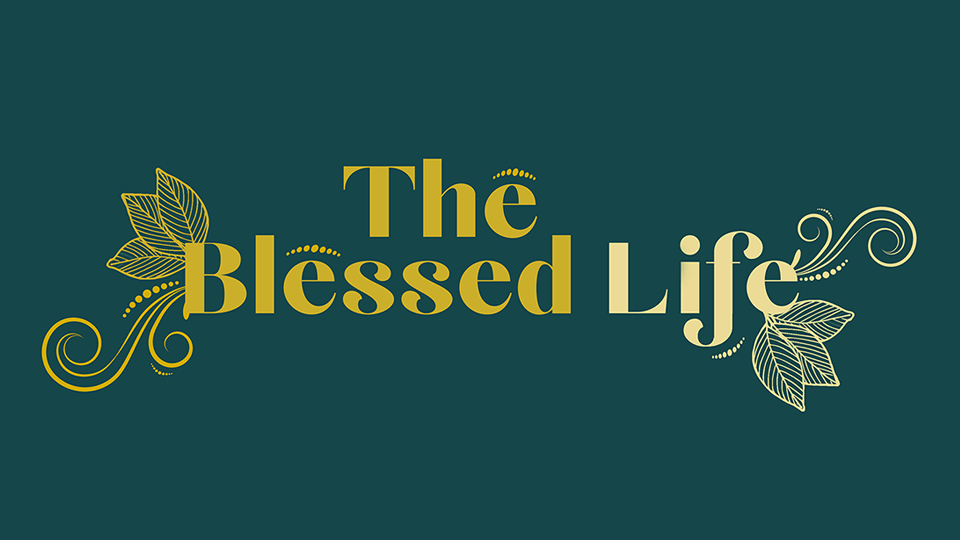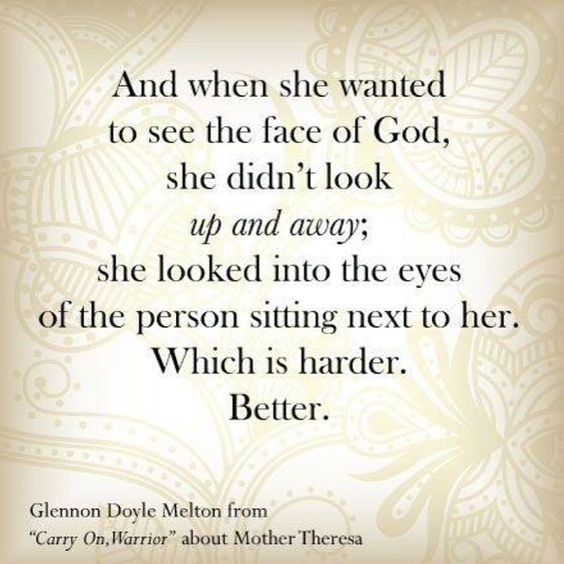March 21 Worship
Full Service
Message: What We Believe In
Lenten Devotional – Sun, Mar 21: Blessed
This week’s texts:
Matthew 5:10-12 (NRSV)
10 “Blessed are those who are persecuted for righteousness’ sake, for theirs is the kingdom of heaven.
11 “Blessed are you when people revile you and persecute you and utter all kinds of evil against you falsely[b] on my account. 12 Rejoice and be glad, for your reward is great in heaven, for in the same way they persecuted the prophets who were before you.
Matthew 5:10-12 (The Message)
10 “You’re blessed when your commitment to God provokes persecution. The persecution drives you even deeper into God’s kingdom.
11-12 “Not only that—count yourselves blessed every time people put you down or throw you out or speak lies about you to discredit me. What it means is that the truth is too close for comfort and they are uncomfortable. You can be glad when that happens—give a cheer, even!—for though they don’t like it, I do! And all heaven applauds. And know that you are in good company. My prophets and witnesses have always gotten into this kind of trouble.
BLESSINGS:
Today we explore how people adapt the idea of the Beatitudes in contemporary language and contexts. This example can start your thoughts about what blessings you see in the ‘upside down’ Kingdom of God. They are written by Rev Nadia Bolz-Weber:
Blessed are the agnostics. Blessed are they who doubt. Those who aren’t sure, who can still be surprised.
Blessed are they who are spiritually impoverished and therefore not so certain about everything that they no longer take in new information.
Blessed are those who have nothing to offer. Blessed are they for whom nothing seems to be working.
Blessed are the pre-schoolers who cut in line at communion.
Blessed are the poor in spirit. You are of heaven and Jesus blesses you.
Blessed are those who mourn, for they will be comforted. Blessed are they for whom death is not an abstraction. |Blessed are they who have buried their loved ones, for whom tears are as real as an ocean.
Blessed are they who have loved enough to know what loss feels like.
Blessed are the mothers of the miscarried.
Blessed are they who don’t have the luxury of taking things for granted any more.
Blessed are they who can’t fall apart because they have to keep it together for everyone else.
Blessed are the motherless, the alone, the ones from whom so much has been taken.
Blessed are those who “still aren’t over it yet.”
Blessed are they who laughed again when for so long they thought they never would. Blessed are those who mourn.
You are of heaven and Jesus blesses you.
What blessings would you add to the Beatitudes? Who has surprised you, in your lifetime, as a child of God? — Rev Gail
MEDITATIONS:
I imagine Jesus standing here blessing us all because I believe that’s his nature. Because, after all, it was Jesus who had all the powers of the universe at his disposal but did not consider his equality with God something to be exploited. Instead, he came to us in the most vulnerable of ways, as … flesh-and-blood … As if to say, “You may hate your bodies, but I am blessing all human flesh. You may admire strength and might, but I am blessing all human weakness. You may seek power, but I am blessing all human vulnerability.” This Jesus whom we follow cried at the tomb of his friend and turned the other cheek and forgave those who hung him on a cross. Because he was God’s Beatitude—God’s blessing to the weak in a world that admires only the strong. — Nadia Bolz-Weber
Challenge or Question: Identify a blessing within your life. One aspect of your life for which you are grateful. Give thanks for it. Say a prayer, write it in a journal, or light a candle to acknowledge this blessing.
Lenten Devotional-Sat, Mar 20: CHILDREN of GOD
All along, we’ve meditated on the idea that these blessings are given to all of us. That in this ‘upside down’ version of the Kingdom of God, people who might not have been recognized as being valuable, became significant in the sight of Christ and the eyes of God. It’s as true today as it was when these blessings were written down almost 2,000 years ago.
Of course, Jesus lived his life by demonstrating that the tenets of his own faith — Judaism — already prioritized compassion for people on the edges of a community: widows, orphans, strangers and others who could be overlooked due to their lack of status and power. He lived the values he had been taught by his own faithful parents. He modeled those values for his disciples.
What does that look like? He ate meals with outcasts who might be considered traitors to their own people, such as tax collectors who had authority but worked for an oppressive regime. He healed untouchables. He let questionable people come near to him, when his friends tried to keep them away. He fed people. He accepted invitations into the homes of socially-isolated folks. He argued with the best scholars and lawyers and spiritual teachers of his day. He picked rough working-class friends as his companions for the road. He found respite in the homes of women like Mary and Martha. He defended people accused of wrongdoing. He spent time with among people struggling with undiagnosed illnesses ranging from epilepsy to mental health conditions. He gave his time and attention to people who lived on the margins.
Jesus described, in the Beatitudes, people who lived on the outskirts of any community. By his recognition, he drew them—and continues to draw us—into the center of God’s kingdom.
To be called a peacemaker, and then to be embraced as a child of God, is to be welcomed into kinship and connection to a holy family. It is to be adopted and called beloved.
All of us, it is likely, have found ourselves living out one of these beatitudes or another. They aren’t an equation for how to live perfectly. They’re a description of the here-and-now, deep down in the raw reality of being human, and what that looks and feels like.
At some point, we have reflected one or more of these conditions. We have been hungry and passionate. We have been poor and stubborn. We have believed without reason and become desperate enough to let others help care for us. We have hoped when it was hard to go on. We have seen something holy and sacred in other people, even when it might be difficult. We have responded to hate with love, to discord with curiosity.
We’ve been amazing and strong and creative and compassionate. We have also messed up. We have, as often as not, gotten our living and loving wrong.
Yet the wonder of the blessing is that it isn’t offered to perfect practitioners of peace-making or the other characteristics described in the Beatitudes. Jesus doesn’t expect us to have everything all figured out. We don’t have to check off all the boxes or to qualify for some special degree of sainthood.
This blessing is for the peace-makers. It’s for people like you and me. People, like us, who are works-in-progress. We’re living our lives, imperfectly and messily, with a yearning for something more, a marrow-deep, soul-stirring desire to connect to Godself. We want more love than indifference, we want more peace and healing than hate and hurt.
You. Me. Us. We are the mixed-up, messed-up, trying-to-get-it-right children of God. — Rev Gail
MEDITATIONS:
I am to be loved, honored and respected solely because I exist … I am a beloved child of God after all. ― Emmanuella Raphaelle
As children of God, we are walking portals to the Divine, and the Kingdom of Heaven is within. ― Benjamin Decker
I do not stop being a child of God because I am a problem child. ― Bryan Chapell
Just because you are a child of God, that doesn’t mean you can act like a child. ― Robert Gilbert
Although claiming my true identity as a child of God, I still live as though the God to whom I am returning demands an explanation. I still think about his love as conditional and about home as a place I am not yet fully sure of … I keep entertaining doubts about whether I will be truly welcome when I get there … I am not yet able to fully believe that where my failings are great, ‘grace is always greater.’ ― Henri Nouwen
… no matter what I look like, where I live, or how much I have now, I am a princess. I am a daughter of the King of Kings! That’s true of every one of us who belong to God. We are … born ‘for such a time as this.’ … It means we’re uniquely positioned with our particular gifts, experiences, abilities, and limitations to do something further God’s kingdom here—in this place, at this time, and among these people. ― Sarah Christmyer
You will find that there is a mighty power, a non-exclusive, eternal dimension that actually can change your psychology, your joy of life; it can lift you up, give you a sense of self beyond anything you imagined to empower you to become that child of the universe, a child of God to whom … goodness can come. Take the time to seek … ― Theodore J. Nottingham
Challenge or Question: Can you use the symbolism of your own parent-child relationship to imagine being loved by Godself? If not, what sort of relationship have you experienced, that fully recognizes you and supports you as a valuable human being, in place of that image? Some suggestions might include: Teacher and student? Friend to friend? Coach with learner? Sponsor with twelve-step participant? If your parent-child relationship can hold up as an example of a loving model, then identify a time when you felt accepted by your family, even if you were not at your best?
Lenten Devotional – FRI, Mar 19: PEACEMAKER
Notice that in this blessing, those who receive it are those working toward peace. Even this state of being, whether internal or societal, has not yet been accomplished. The gift is offered to those who seek its achievement, if not in their own lifetimes, then in generations to come. They help build it up.
Perhaps we can best refer to the adage attributed to Lao Tsu when we consider the scope of how we strive for peace in our lives:
If there is to be peace in the world,
There must be peace in the nations.
If there is to be peace in the nations,
There must be peace in the cities.
If there is to be peace in the cities,
There must be peace between neighbors.
If there is to be peace between neighbors,
There must be peace in the home.
If there is to be peace in the home,
There must be peace in the heart.
All of us, at one time or another, need peace in our hearts, our homes and relationships, or within our communities. And most of us, at one time or another, have contributed to the possibility of knowing such peace, even for a period of time.
We are all, at some time and in some places, the peacemakers. — Rev GaiI
MEDITATIONS:
When I say it’s you I like, I’m talking about that part of you that knows that life is far more than anything you can ever see or hear or touch. That deep part of you that allows you to stand for those things without which humankind cannot survive. Love that conquers hate, peace that rises triumphant over war, and justice that proves more powerful than greed. — Fred Rogers
The first peace, which is the most important, is that which comes within the souls of people when they realize their relationship, their oneness with the universe and all its powers, and when they realize at the center of the universe dwells the Great Spirit, and that its center is really everywhere, it is within each of us. — Black Elk
Challenge or Question: What gives you peace?
Lenten Devotional – THURS, Mar 18: SEE (revisited)
Who has seen Godself? How do we see God? Do we see Godself in human form, as described here, or as something else?
In scripture, few people could come directly into the presence of Godself. The great prophet Moses did so. Others could not look upon the radiance of his face afterward. A few other Biblical prophets also reported meeting God in person.
Famously, in Hebrew Scriptures, Jacob wrestled with a stranger at night on his way to Canaan. Though dawn was approaching, neither person could prevail. Jacob refused to give up the struggle, so the stranger touched his hip, and hi joint came out of place. Afterward Jacob limped. By remaining stubbi=orn and continuing to wrestle, he won for himself a blessing and the new name Israel. Jacob named the place by the river where he had wrestled with Godself Peniel or Penuel. (פְּנוּאֵל) Trabnslated, this means “face of God” or “facing God”.
Later, in a tender passage, Jacob then says to his brother Esau, “For I have, after all, seen your face, as one sees the face of God…” He sees Godself in his sibling’s face. It is a fleeting experience. The connection doesn’t endure, perhaps because humans cannot sustain such awareness in each other’s company. Theologian Steve Watson writes, “He has just had this profound spiritual experience – he knows a thing or two about seeing the face of God. And he looks at his brother, face to face, and thinks that is what is happening. To see you accepting me, for us to be at peace – without walls, without fear, person to person, is for me to see in your face the face of God. … this proves to be too much. The intimacy of full personhood, brother to brother, is somehow so unfamiliar, so threatening, that within a day, he’s moved on… But for a moment, he had that connection, that peace to see the face of God in his brother.”
Yet for a brief time, they both experienced a profound sense of once more being in God’s company. They found God in each other.
Of course, the followers of Jesus walked in the embodied presence of the child of God. Most Christians recognize him as part of the holy trinity: Godself.
Jesus also, powerfully, reminded people that when they attended to the needs of others, they attended to the needs of God. They met Jesus in the form of other people to whome they offered compassion. How often, then, might you have been meeting the needs of Godself, even sat or kept vigil in the presence of Godself, by responding to human needs?
In our times, how do we see Godself in the world around us?
Has any person ever brought you into the presence of God? Perhaps at thesholds, such as birth or death, or life moments such as making promises to each other?
Or have you, like Moses, find Godself out in nature? On top of a mountain? Inside the the branches of a bush? At the ocean’s edge? In a quiet woodland? A spring meadow? A winter storm? A summer rainfall? In the midst of birdsong? Surrounded by wild creatures? In the presence of your own pet?
Remember that Godself saw your face first. And loved you, even if you didn’t recognize Godself. — Rev Gail
MEDITATIONS
Trust and value your own divinity as well as your connection to nature. Seeing God’s work everywhere will be your reward. — Wayne Dyer
Love is seeing God in the person next to us, and meditation is seeing God within us. Votes: — Sri Sri Ravi Shankar
Never lose an opportunity of seeing anything beautiful, for beauty is God’s handwriting. — Ralph Waldo Emerson
Seeing God face to face is to feel that He is enthroned in our hearts even as a child feels a mother’s affection without needing any demonstration. — Mahatma Gandhi
Challenge or Question: Where do you experience God’s self-revelation in the world?


